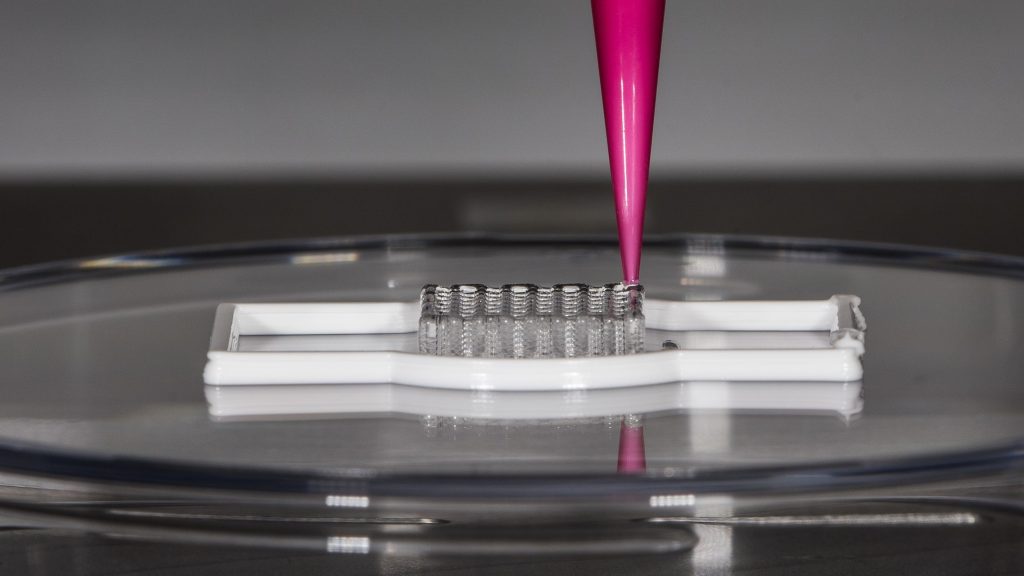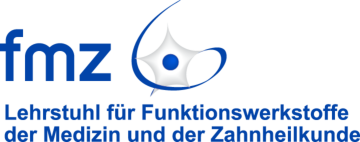Biofabrication Master – Application deadline (Juli 15)
Apply for the Masters Degree to get part of the Masters Program and to specialize in Biofabrication.
The degree is application oriented and offers the chance to acquire practical skills in the young research area.
More information available here:
https://www.chemie.uni-wuerzburg.de/studium/studiengaenge/biofabrikation/

Master’s degree in biofabrication
Biofabrication is a rapidly growing research area that utilizes automated processes to generate functional biological tissues. It is a strongly interdisciplinary field combining engineering, material science and biology. In many cases, additive manufacturing is a key element to generate tissue analogues for applications like personalized tissue model systems for drug screening or improved therapies.
The University of Würzburg was one of the first locations worldwide to offer a specialized Master´s program focusing on Biofabrication and the structure of the Master´s degree was designed in a way that represents the interdisciplinary character of Biofabrication with a focus on material science. The courses within the degree cover a spectrum of different disciplines and help the students to connect to other study courses within the faculty of chemistry and pharmacy. Individualized specialization and strengthening of practical expertise are ensured via the research internships.
Study contents
Detailed information about the degree can be found on the website of the Faculty.
The courses, each with 5 ECTS credits from the first semester, are as follows:
Mandatory
- Polymers II (in German)
- Biofabrication (in English)
- Physical Chemistry of Supramolecular Structures (in German)
- Fundamentals of tissue engineering and quality management (in German)
Electives (two from the four below)
- Carrier materials for medicinal active ingredients (in German)
- Fundamentals of Supramolecular Chemistry (in German)
- Polymer materials 1: Technology of modifying polymer materials (in German)
- Microsystems for biological and medical applications (in German)
2nd semester
- BioFab Research Internship 1 (30 ECTS)
3rd semester
- BioFab Research Internship 2 (30 ECTS)
4th semester
- Master Thesis Biofabrication (25 ECTS)
- Final Colloquium (5 ECTS)
Application and Approval
The Master’s degree requires a degree in a bachelor’s degree, with 80 ECTS credits from the fields of inorganic, organic and physical chemistry. Furthermore, 10 ECTS points are required in theoretical and practical fields of biofabrication (e.g. polymer science, rheology, materials science, mathematics, computer science, mechatronics, biochemistry or (molecular) cell biology). Participation in an interview process is compulsory. The provisional admission to the Master’s degree can be granted if at least 150 ECTS credits are awarded in a corresponding bachelor’s program.
If you have any questions about the required requirements, please send them to master.biofabrikation@uni-wuerzburg.de.
For candidates with a degree from a non-German-speaking institution, proof of sufficient knowledge of German is required.
Further details on the application process can be found on the following website:
https://www.chemie.uni-wuerzburg.de/studium/studiengaenge/biofabrikation/
Acknowledgement
Thanks to the EU for Funding Exchange Programs during the initial stage of the course (support concluded)

Financed by European Commission Encounter Program #2013/3137 001-001 “BIOFAB”
